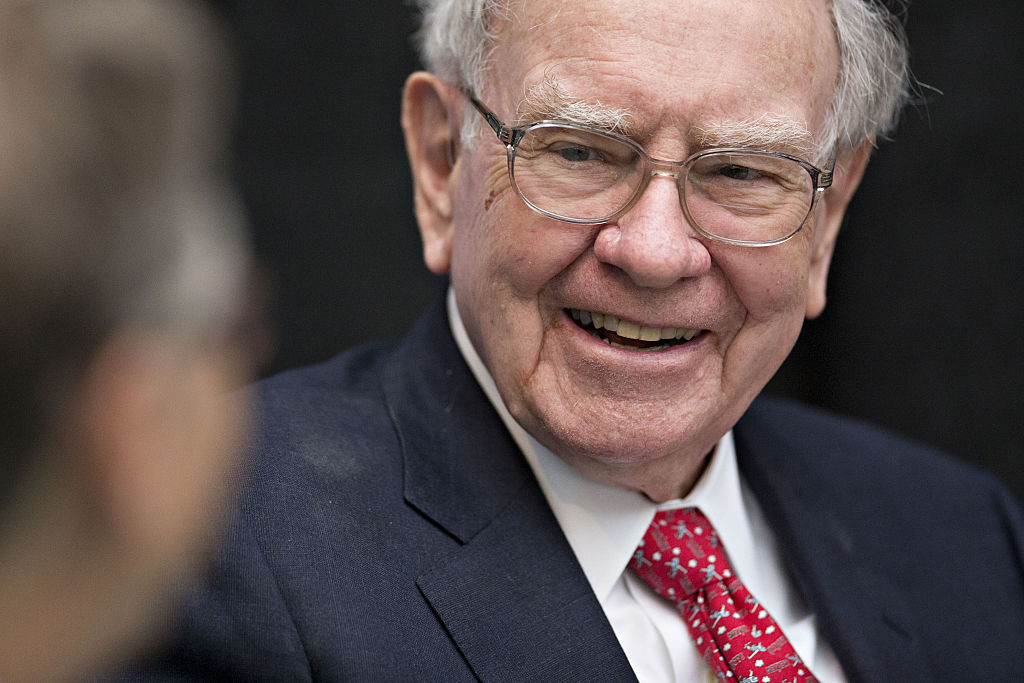You may not like tobacco stocks, but they treat their investors very well
The tobacco sector may not be ESG-friendly, but it has produced outstanding returns for investors in the past. Rupert Hargreaves looks at whether this can continue – and picks the stock with the best prospects.


Get the latest financial news, insights and expert analysis from our award-winning MoneyWeek team, to help you understand what really matters when it comes to your finances.
You are now subscribed
Your newsletter sign-up was successful
Want to add more newsletters?

Twice daily
MoneyWeek
Get the latest financial news, insights and expert analysis from our award-winning MoneyWeek team, to help you understand what really matters when it comes to your finances.

Four times a week
Look After My Bills
Sign up to our free money-saving newsletter, filled with the latest news and expert advice to help you find the best tips and deals for managing your bills. Start saving today!
On the face of it, tobacco giants Imperial Brands (LSE: IMB) and British American Tobacco (LSE: BATS) are some of the cheapest stocks in the FTSE 100. Imperial is the cheaper of the two. Its shares trade on a forward price-to-earnings (p/e) ratio of 6.4, while British American is on a p/e of 9.
As is so often the case, these stocks are cheap for a reason. The key question for investors is whether those reasons are sufficient to put you off investing in these companies.
The shares look cheap but this reflects growing uncertainty
To borrow a phrase from the US investor Warren Buffett, the best way to value a company is to analyse its future cash flows from now “until judgement day.” One big problem is that this is quite hard to do with tobacco companies.
MoneyWeek
Subscribe to MoneyWeek today and get your first six magazine issues absolutely FREE

Sign up to Money Morning
Don't miss the latest investment and personal finances news, market analysis, plus money-saving tips with our free twice-daily newsletter
Don't miss the latest investment and personal finances news, market analysis, plus money-saving tips with our free twice-daily newsletter
Regulators are always looking for new ways to clamp down on smoking, and cigarette sales have been trending lower for decades. This makes it almost impossible to estimate how much profit these businesses will generate. Analysts might have some idea about potential profits over the next year or two, but after that, the picture becomes a lot more uncertain.
Then we need to consider ESG (environmental, social and governance) credentials. Tobacco companies have been eschewed by purpose-driven investors since the middle of the last century, when the link between smoking and cancer was first established. As more and more cash flows into ESG-linked funds it is likely money will continue to flow out of these companies.
Even if you’re an ESG sceptic (and there are plenty of reasons to be), it’s pretty obvious that unlike defence stocks or even oil companies, tobacco stocks are never going to make the cut, regardless of how leniently you draw the line. That means a certain amount of capital will almost always be unavailable to them.
However, while past performance is no guide to future returns, we can’t ignore the fact that tobacco stocks have produced absolutely outstanding returns for investors in the past. US company Altria (NYSE: MO), which owns the Marlboro brand in the US (Philip Morris (NYSE: PMI) is responsible for the brand internationally) is one of the best-performing stocks of all time.
It has returned roughly 17% a year for nine decades. An investment of $1,000 in the company in 1932 would be worth just under $1.4bn today (with dividends reinvested).
Companies are branching out to try and navigate growing uncertainty
The industry does have plans to get around these issues. Over the past decade, British American, Imperial and their peers have spent huge amounts of money on developing what the producers call “reduced risk” alternatives.
These products can be broadly grouped into two categories, “heat not burn” cigarettes, which are supposed to replicate the experience of smoking with fewer cancer-causing chemicals, and “vaping” devices such as electronic cigarettes.
Profits have remained elusive from these divisions as the companies have ramped up marketing and investment spending, but this is beginning to change.
British American announced in its 2021 results that revenues from new products, including “heat not burn” and e-cigarettes, jumped 51% last year. Meanwhile, losses fell by 9% to £100m. Based on its current trajectory, management thinks this division is on track to turn a profit by 2025 and generate revenues of £5bn.
Imperial is also making progress. In its latest trading update, published this morning, the group announced that adjusted operating profit in the first half of its fiscal year is expected to grow by a modest 2%, primarily as a result of reduced losses in its Next Generation Product arm.
The development of these new products will help Imperial and British American move away from their legacy tobacco and cigarette businesses, but it’s clearly going to be some time before these arms start producing meaningful profits and cash flow. It also seems unlikely in any case that these will allay ESG concerns.
Strong cash generation allows these firms to look after their investors
“Cash is king” is a cliche for a reason, and investors should note the cash-generative nature of tobacco companies’ operations, especially in the case of British American. Last year it earned an operating profit margin of 42%. Imperial’s was a far more modest 10%.
In total, British American generated £9.7bn in operating cash flow last year, allowing it to return nearly £5bn to investors and to reduce its debt. It is planning to return even more cash this year. Management has authorised a £2bn share buyback on top of the regular dividend.
Analysts at JPMorgan believe that there’s a chance of a buyback at Imperial as well. The company is looking to cut its debt to a range of 2-2.5 times net debt to earnings before interest, taxes, depreciation, and amortisation (EBITDA), and when it hits this target, analysts expect further cash returns.
Imperial’s latest trading update states that the firm’s leverage will fall below 2.4 times EBITDA at the end of the first half of its fiscal year. If leverage continues to fall, JPMorgan argues, the company may announce a buyback in November.
And even without including these cash returns, Imperial and British American are some of the highest-yielding stocks in the FTSE 100. The former yields 8.3% while the latter yields 6.7%. With yields like that, it is no wonder these companies are popular with income funds.
There are lots of good reasons why some investors might want to avoid the tobacco sector, but if you’re looking at it purely with an investment hat on, rather than considering the ethics of the business, the reality is that they have a lot of attractions. They generate a great deal of cash and look after their shareholders. So from that point of view, if you’re going to invest, my favourite is British American as it has a much bigger international footprint and is throwing more cash off than its smaller peer.
(Disclosure: I own shares in British American Tobacco)
Get the latest financial news, insights and expert analysis from our award-winning MoneyWeek team, to help you understand what really matters when it comes to your finances.

Rupert is the former deputy digital editor of MoneyWeek. He's an active investor and has always been fascinated by the world of business and investing. His style has been heavily influenced by US investors Warren Buffett and Philip Carret. He is always looking for high-quality growth opportunities trading at a reasonable price, preferring cash generative businesses with strong balance sheets over blue-sky growth stocks.
Rupert has written for many UK and international publications including the Motley Fool, Gurufocus and ValueWalk, aimed at a range of readers; from the first timers to experienced high-net-worth individuals. Rupert has also founded and managed several businesses, including the New York-based hedge fund newsletter, Hidden Value Stocks. He has written over 20 ebooks and appeared as an expert commentator on the BBC World Service.
-
 Early signs of the AI apocalypse?
Early signs of the AI apocalypse?Uncertainty is rife as investors question what the impact of AI will be.
-
 Reach for the stars to boost Britain's space industry
Reach for the stars to boost Britain's space industryopinion We can’t afford to neglect Britain's space industry. Unfortunately, the government is taking completely the wrong approach, says Matthew Lynn
-
 The Stella Show is still on the road – can Stella Li keep it that way?
The Stella Show is still on the road – can Stella Li keep it that way?Stella Li is the globe-trotting ambassador for Chinese electric-car company BYD, which has grown into a world leader. Can she keep the motor running?
-
 What's behind the big shift in Japanese government bonds?
What's behind the big shift in Japanese government bonds?Rising long-term Japanese government bond yields point to growing nervousness about the future – and not just inflation
-
 How to beat Warren Buffett – and the fund and trusts that have managed it
How to beat Warren Buffett – and the fund and trusts that have managed itWarren Buffett has achieved stellar returns for investors over a long and illustrious career. Can you rival his investment performance?
-
 Fractional shares: what are they and why HMRC is worried?
Fractional shares: what are they and why HMRC is worried?Investors who have flocked to investment apps offering fractional shares in an Isa could lose the tax-free status of their portfolios.
-
 Halifax: House price slump continues as prices slide for the sixth consecutive month
Halifax: House price slump continues as prices slide for the sixth consecutive monthUK house prices fell again in September as buyers returned, but the slowdown was not as fast as anticipated, latest Halifax data shows. Where are house prices falling the most?
-
 Rents hit a record high - but is the opportunity for buy-to-let investors still strong?
Rents hit a record high - but is the opportunity for buy-to-let investors still strong?UK rent prices have hit a record high with the average hitting over £1,200 a month says Rightmove. Are there still opportunities in buy-to-let?
-
 Pension savers turn to gold investments
Pension savers turn to gold investmentsInvestors are racing to buy gold to protect their pensions from a stock market correction and high inflation, experts say
-
 8 ways to profit from Japan’s recovery
8 ways to profit from Japan’s recoveryCorporate reform, normalising monetary policy and cheap valuations make Japanese equities a top long-term bet, says Alex Rankine.